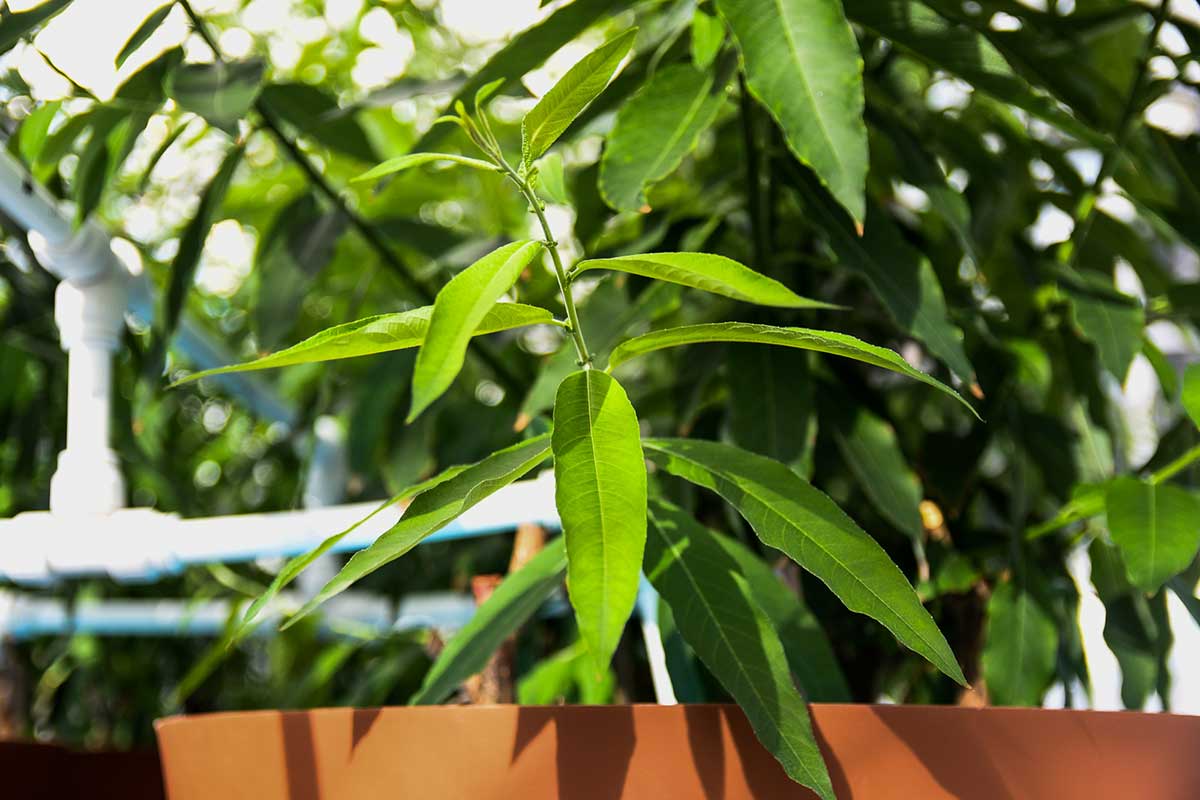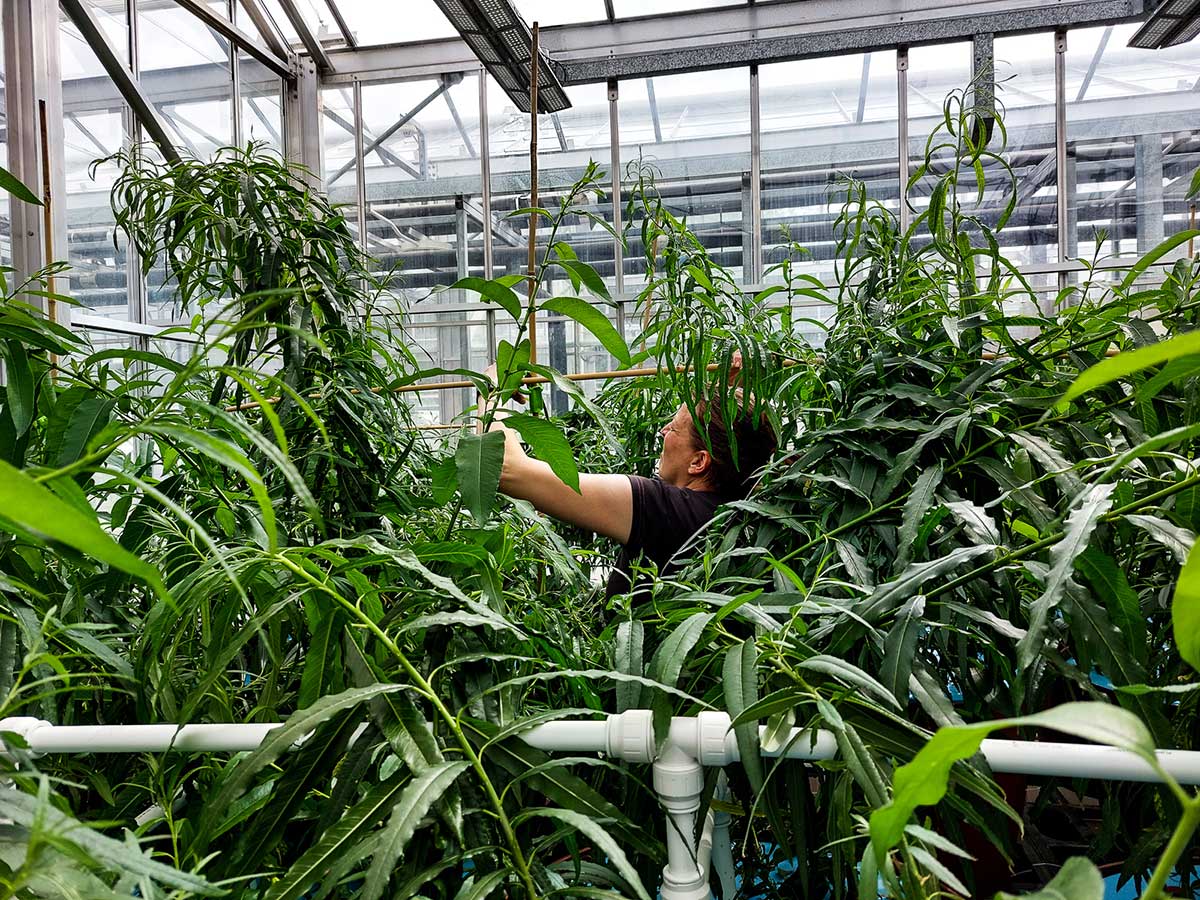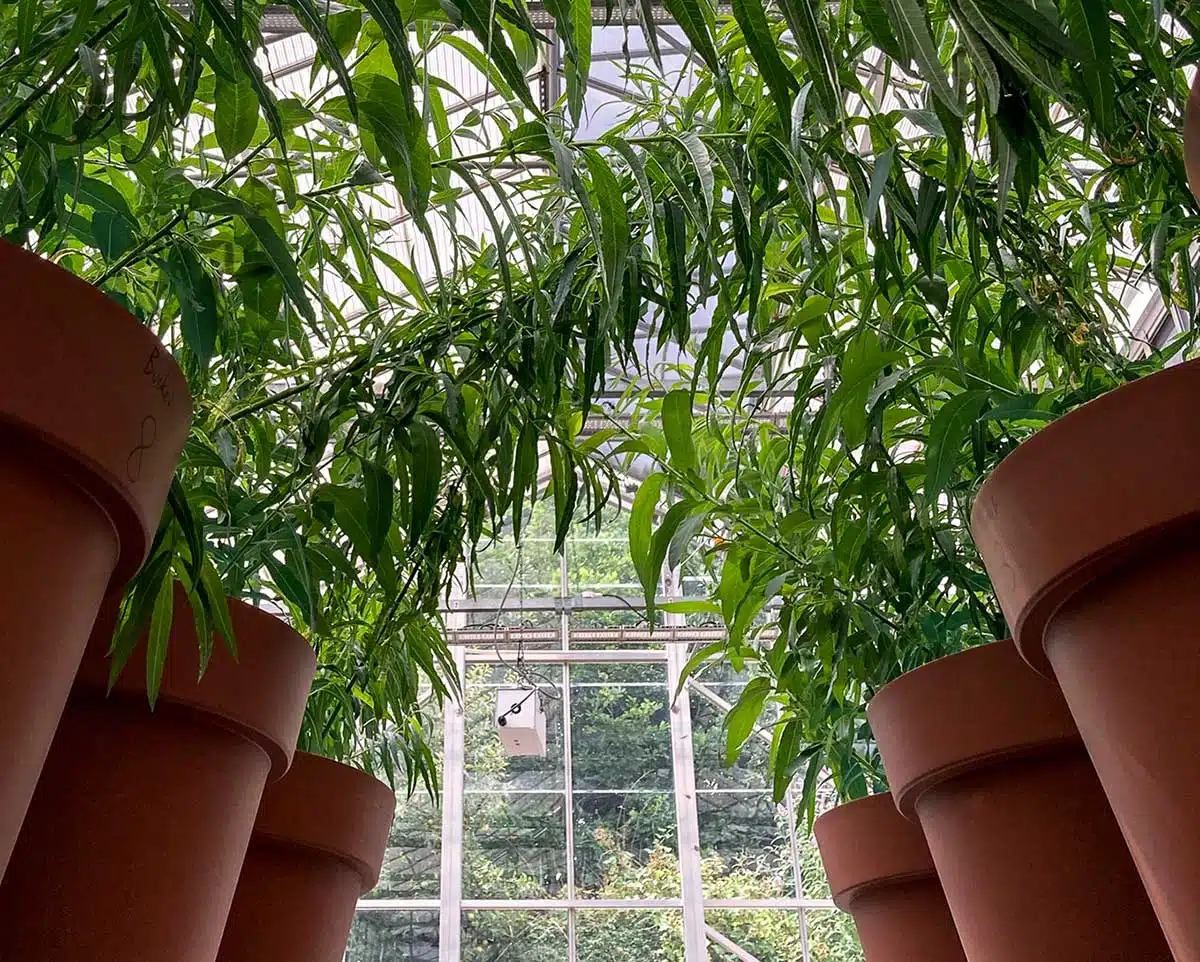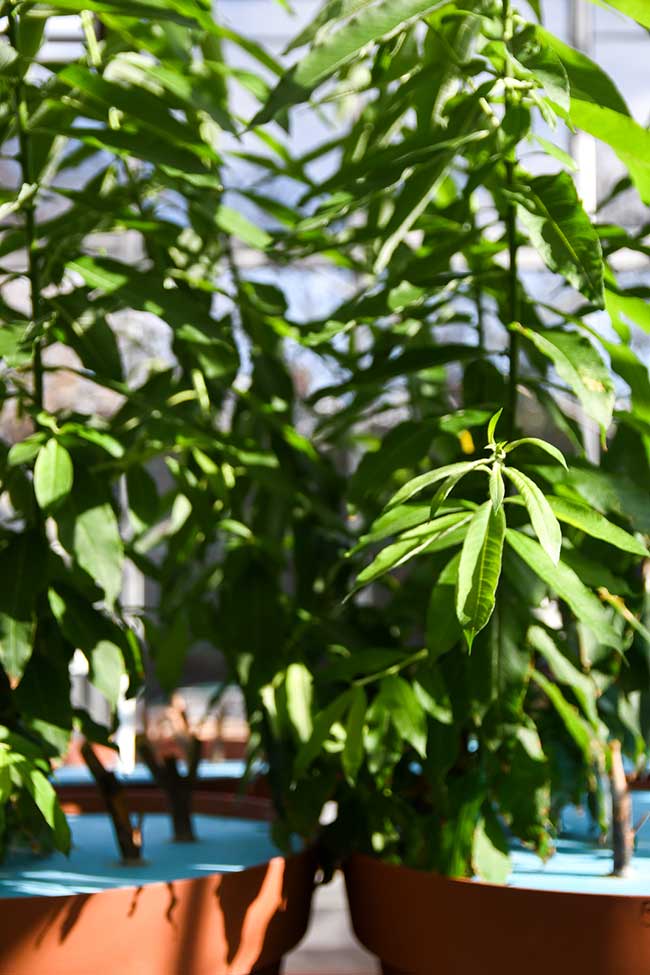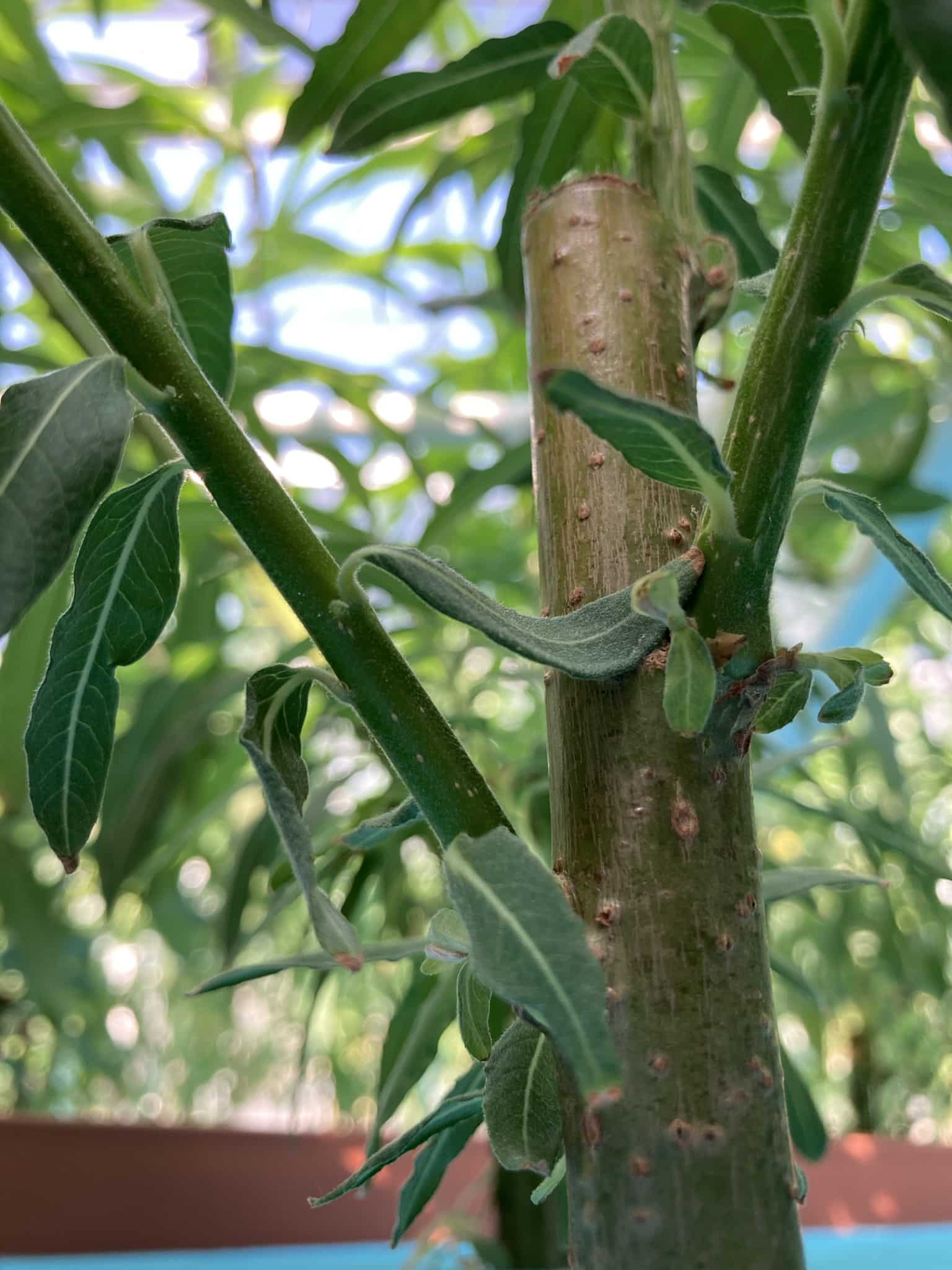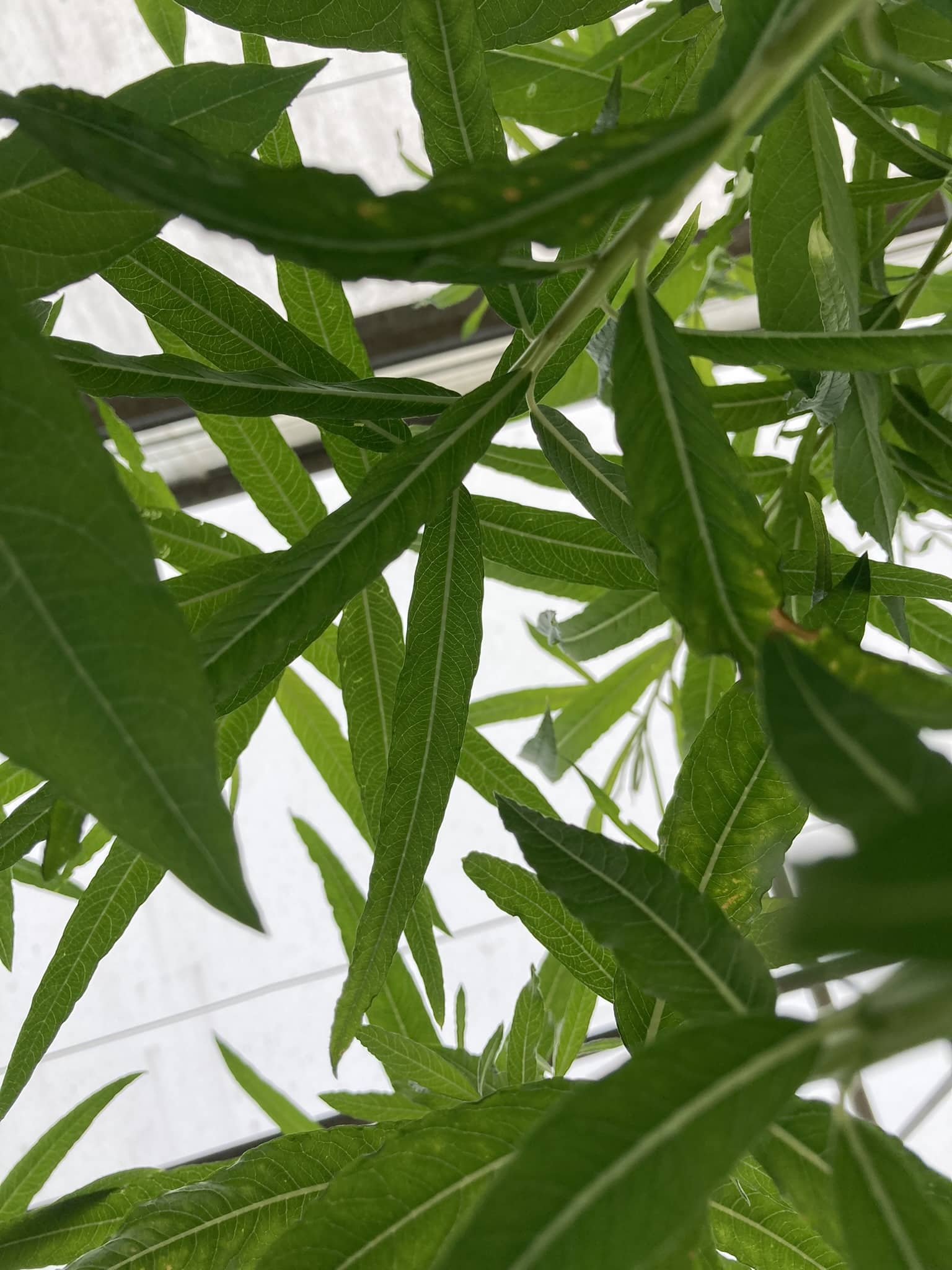Taeda Tech Project – Growing woody crops in aeroponics for a sustainable future
Growing Woody Crops in Aeroponics
 The use of aeroponics in the propagation of short rotation coppice (SRC) willow and other woody biomass crops could remove the bottleneck to upscaled production – according to the Taeda Tech project.
The use of aeroponics in the propagation of short rotation coppice (SRC) willow and other woody biomass crops could remove the bottleneck to upscaled production – according to the Taeda Tech project.
The Climate Change Committee’s forecast to meet net zero included the recommendation of 720,000ha of bioenergy crops in the UK by 2050 – an enormous upscale from the 10,000ha that are planted today.
And while 2050 seems well beyond the horizon, it is on the doorstep in terms of this level of upscale. But time is not the only issue; the UK relies heavily on imported feedstocks and since leaving the EU commercial planters have struggled to get hold of stock from abroad. There are stocks in the UK, but not enough – which is compounded by the current inability to increase growth rapidly and efficiently. However, novel technologies like aeroponics, growing plants in an air or mist environment without the use of any substrate, could hold the key to removing the bottleneck – and also bolster climate action.
Project
With an established aeroponic set-up, the Centre for Environment and Sustainability at the University of Surrey is using the UK Government-funded Biomass Feedstocks Innovation programme (BFI) to further aeroponic technology in producing superior quality woody crops.
Led by Dr Zoe Harris, senior lecturer, and Mark Horler, chair of UK Urban AgriTech, the Taeda Tech project is focused on optimising aeroponic technology for sustainable propagation of SRC willow.
Aeroponic technology has massive potential to not only strengthen plant nursery stock production for bioenergy, but also for reforestation and rewilding efforts. In comparison to traditional field multiplication, the technology can:
- Propagate SRC willow faster,
- Achieve a higher yield of planting material,
- Produce on a smaller land footprint,
- Deliver greater quality control.
To increase its impact and enhance commercial success, the project has partnered with LettUs Grow, Rothamsted Research, Aberystwyth University, Forest Research, National Institute of Agricultural Botany (NIAB), NMC2, Glideology, and CapitalAgri.
It will be using:
- Digital twin modelling: To inform and optimise growing processes.
- Lifecycle assessments: To assess the sustainability of processes, quantifying differences between aeroponic multiplication methods and traditional field multiplication.
- Socio-economic modelling: To assess how aeroponic technology might influence the UK in terms of economic growth, jobs, opportunities to import/export etc.
“Our aspiration is to enable the biomass industry to expand rapidly, with more bioenergy and more forests planted sooner, so we can start capturing carbon and fighting climate change.”
Latest
The project’s initial objective centred around the biomass and bioenergy sector. However, developments have revealed an opportunity to use its technology in three separate avenues with commercial gains:
- Biomass and bioenergy: Focusing on the production of planting material for energy generation
- Forestry: Focusing on the production of nursery saplings for forestry and other land use
- Research and development (R&D): Focusing on accelerating R&D outcomes by applying the technology to R&D components like stressor assessment.
It aims to use aeroponics to generate two crops of planting material (cuttings) within a year – double the amount of biomass and 25% faster than traditional field multiplication methods.
The project has several trials ongoing including:
- A long-term trial, started in 2022, propagating five commercial SRC willow genotypes using aeroponic technology under two different environments – greenhouse and polytunnel.
- An optimisation and yield trial at a project-built research facility in Surrey, using the five genotypes in disparate environments, with a focus on optimising operations – irrigation schedule and nutrient mix.
- A set of destructive harvest experiments to quantify biomass allocation, supporting development of the digital twin model.
- An experiment working with some of Rothamsted’s near commercial varieties to look at how the project could be interoperable with Rothamsted’s breeding programme.
- Greenhouse controlled environment trial growing five other species of biomass crop – not willow – looking at aeroponic propagation.
- Substrate trials comparing which substrates best support crops.
“A key finding has been that our application of aeroponics in SRC willow propagation is comparable to field cultivation in terms of emissions per kilowatt hour of energy produced”
As of February 2024, the project has achieved 1.7 crops of planting material in a year, which is significant progress towards its target of two crops per year.
It has also determined that aeroponic propagation – at its current optimisation – has comparable associated GHG emissions (g/CO2 per KWh) to traditional field multiplication. This goes a long way in mitigating concerns surrounding these controlled growing systems, as the project foresees further improvements.
“A lot of markets depend on imported varieties. But planters are now struggling to get hold of stock from abroad – so this is very problematic if we are to start upscaling production”
Next Steps
The team will continue with their ongoing trials, with some completing under the BFI while others will sustain beyond it. They will also be adding a set of trials later in 2024, exploring planting density and the impact of mixed and singular genotype growth within a crop.
Data and outcomes will continue to be fed back into the project’s systems to continue to improve its application of aeroponics.
Beyond the BFI, which ends in March 2025, the project plans to work towards enhancing research and development into strengthening crop genetics.
Further Information
- Email: [email protected] for more information.
- Taeda Tech Project Website: https://www.taedatechnologies.com/
- LinkedIn: TAEDA Tech Project https://www.linkedin.com/company/taeda-tech-project
- Twitter: @TAEDAtech https://twitter.com/TAEDATech
- BEIS Biomass Feedstocks Press Release: https://www.gov.uk/government/news/renewable-energy-innovation-boosted-by-37-million-government-funding-across-the-uk
Gallery
Return to Innovation Projects overview
